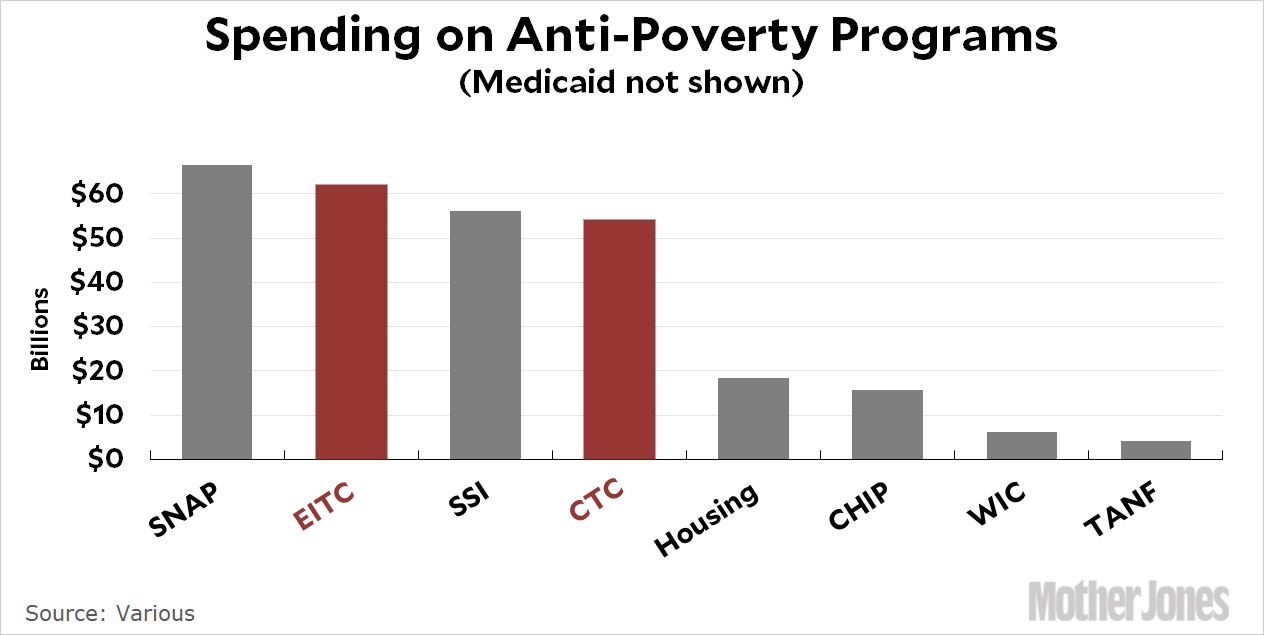It’s nice to see a conservative being honest about something that’s normally a conservative hobbyhorse. In this case, it’s AEI visiting scholar Bruce Meyer talking about fraud in the EITC program:
James Pethokoukis: So, what about that fraud issue many conservatives gripe about? Is it an overpayment or mispayment issue? What is happening there with that?
Bruce Meyer: I think that that’s overstated. You sometimes will hear numbers like 30% — I probably shouldn’t repeat these numbers — that a substantial share of the dollars are paid in error. But many of these calculations don’t go back and say, “Well, the money went to grandma instead of her daughter who we think should get the credit.” Those statistics often will count the money that goes to grandma but then not net out the money that should have gone to the daughter, so it would’ve been paid out anyways; it just went to the wrong person.
….It’s a scandal that the instructions for the Earned Income Tax Credit — I haven’t looked at the most recent tax guide — but it used to look something like 18 very dense pages out of the entire 200 pages of tax guide, so it’s just way too complicated. It’s not surprising that there are lot of errors under that circumstance.
The EITC is a program that provides tax refunds to people who work. Liberals like it because it helps poor people. Conservatives like it because it only rewards people with jobs. Economists like it because it doesn’t act as a disincentive for work. Aside from Medicaid,¹ it’s one of the biggest and broadest anti-poverty programs we have:

The problem with the EITC is that for the past couple of decades conservatives have been pushing a story about the program being riddled with fraud. In the 90s, Bill Clinton managed to pass an EITC expansion, but only on condition that he agree to an extra $100 million solely to audit EITC applicants—at a time when Newt Gingrich was busily cutting funds for the IRS audit unit that mostly checks up on high-income taxpayers.
But most EITC “fraud” is just unintentional errors. As Meyer points out, the rules surrounding the EITC are complex, and the biggest part of the complexity revolves around children. Generally speaking, EITC is only available to families with kids, and the rules about residency and custody and so forth are many pages long—not to mention the added complexity related to income calculations and benefit levels. It’s no wonder that mistakes are frequent.
But here’s an odd thing: if there are lots of mistakes in claiming the EITC, there are also lots of mistakes in claiming the Child Tax Credit. Many of the rules are similar, and similarly complex. And yet conservatives almost never complain much about that. Why? Most likely because the EITC is limited to poor people while the CTC doesn’t start phasing out until family income is above $100,000. To Republicans, the EITC is a welfare program targeted largely at blacks and Hispanics while the CTC is a family program that helps lots of middle-income folks. That makes all the difference.
¹Medicaid spending clocks in at around $550 billion counting both state and federal contributions. It’s nearly ten times bigger than the #2 anti-poverty program.














